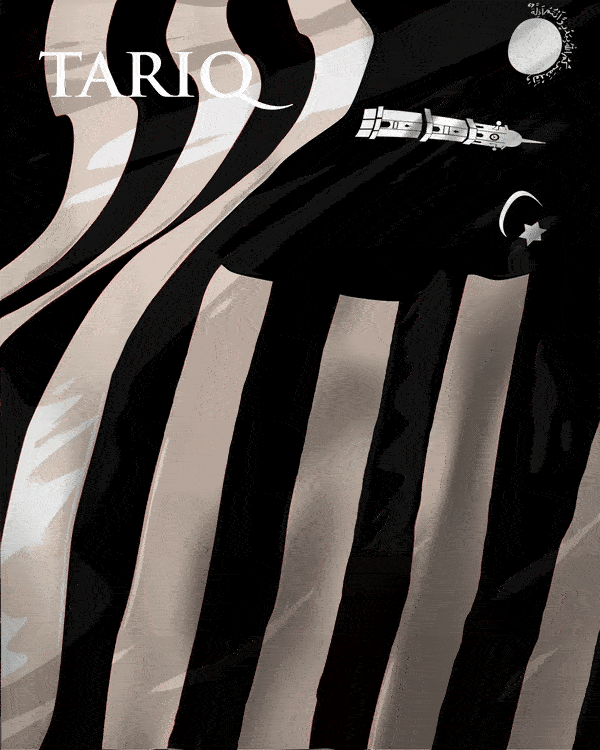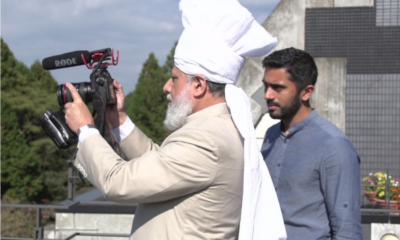What's Happening in Town
Muslims Celebrating Christmas? There’ll be no Turkey in my Oven

Whilst scrolling on instagram I found so many photos and stories of Muslims putting up Christmas trees or talking about how to prep a turkey for a Christmas dinner. In recent years it has become commonplace, and even fashionable, for some Muslims to celebrate Christmas. Some Muslims see no harm in taking part in these activities and are of the view that Christmas is no longer exclusively a Christian event, but rather, a cultural holiday which emphasises values of family, the spirit of togetherness, and sharing food. This, however, is an unconvincing argument. What we ought to remember is what begins as an innocent indulgence can often become tradition.
Christmas finds its roots in not just the history of the Christian tradition but originally derives from the Roman Pagan religion. It not only relates to the birth of Jesusas, whom Christians consider to be the son of God, but in fact goes as far back as the pagan practices of polytheistic peoples. Through celebrating Christmas we are, knowingly or unknowingly, endorsing such values. It is for this reason that a Muslim celebrating Christmas is paradoxical because such celebrations contradict the fundamental tenets of our religion.
Christmas’s historical roots in the pagan religion are well known. In Ancient Rome there was a feast celebrated in late December known as Saturnalia. This feast celebrated the winter solstice, when the sun started to come back and the when the days begun to get longer. This feast was in honour of the Roman god of agriculture; Saturn. Even back in the fourth century BC, long before they had accepted Christianity, the Romans would feast, light candles, sing, decorate their houses, and exchange gifts – very similarly to how Christmas is celebrated today. In fact, they even had Christmas trees which were cut and brought into the home to symbolise the “return of life” and “light”. Interestingly, just how people today decorate their trees with baubles, the Romans too decorated theirs with apples. Evidence of these celebrations can be found in the work of the great Roman philosopher Seneca, who noted:
“It is now the month of December, when the greatest part of the city is in a bustle… Loose reins are given to public dissipation, everywhere you may hear the sound of great preparations.”
In addition to having links with paganism, what is even more strange about the holiday is that it would appear that Jesus (as) himself wasn’t actually even born on Christmas day. Scholars have long debated the topic of Jesus’as exact date of birth, but it is now clear that he was not born on the 25th of December. Many leading Christian figures, including Pope Benedict XVI, now agree with this position. So when was Jesusas really born? The Bible does not directly answer this question but if we read the Gospel of Luke in the New Testament, it does shed some light onto this matter. In Luke it states:
“And there were in the same country shepherds abiding in the field, keeping watch over their flock by night.”
This verse indicates that Jesusas was more likely born in the summer months rather than in the winter, because shepherds are highly unlikely to watch over their flock in the cold month of December. Nineteenth-century American theologian Albert Barnes agreeing with the above, conceded in his commentary that:
“It is probable from this that our Saviour was born before the 25th of December, or before what we call ‘Christmas’. At that time it is cold, and especially in the high and mountainous regions about Bethlehem. But the exact time of his birth is unknown; there is no way to ascertain it.”
The Holy Qur’an confirms that Jesusas was indeed born in the summer months. In the Qur’an it states:
“…the angel called her from beneath her, saying, ‘Grieve not. Thy lord has placed a rivulet below thee; and shake towards thyself the trunk of the palm-tree; it will drop upon thee fresh ripe dates; so eat and drink and cool thine eye.’” [The Holy Qur’an 19:25-26]
This verse indicates that Mary took shade under a date tree during labour and that God provided her with dates to eat. But this would have been impossible if Jesusas was born in December, since dates are not ripe at that time of the year.
For these reasons, Christmas has also been unpopular with some Christian groups as well. The Puritans in England during the Interregnum period famously declared “war on Christmas” in the mid-17th century. In 1647, they banned Christmas which they considered to be “a popish festival with no biblical justification.”
Christmas, then, it would seem, is not just unislamic but also perhaps unchristian too.
Apart from being paganistic, celebrating Christmas further fosters lies and deception. How? you ask me; the answer: Santa Claus.
Santa Claus is the legendary character who is said to bring gifts to the homes of well-behaved children. He is usually depicted as a jolly, portly, white-bearded man who wears a red coat with white fur cuffs and carries a bag full of gifts to give to children. Children all around the world are fed with the lie that if they behave well throughout the year then they will be rewarded by Santa Claus. If they do not, then they will be on Santa’s naughty list and will not receive any presents. On the face of it, this is just an innocent white-lie parents might tell their children to ensure good behaviour. But is it really that innocent?
Recently, psychologists have begun to explore whether lying to children about Santa Claus is damaging. The psychologist Christopher Boyle and researcher Kathy McKay state that the story may lead to distrust:
“If they are capable of lying about something so special and magical, can they be relied upon to continue as the guardians of wisdom and truth?”
An example of this can be illustrated through an article published in Time Magazine by Judi Ketteler where she talks about her eight year old son who began to question whether Santa Claus was real or not. When Ketteler found that her son had been googling, “is Santa real?” she confronted him and asked “why do you want to know so much?” Her son responded, blinking away his tears, “Because I feel like you’re lying to me”. Ketteler noticed straight away that what she considered to be a ‘sweet tradition’ was quickly beginning to threaten her son’s trust in her. Ultimately, she decided to come out with the truth. It seems that children are not as oblivious as we might assume. Such lies, may seem trivial, but these small moments can have really severe consequences in people’s long-term relationships.
Some might still argue that there is no harm in such practices and that they are just a period for “sharing” and “familial togetherness”. But we must realise that small actions which, on the face of it, might seem harmless are far from actually being so. What are apparently insignificant and non-consequential practices actually have deep rooted meanings, whether we appreciate them or not. They are rooted in paganistic practices and are thus, tantamount to Shirk (associating partners with Allah). If we continue to encourage such activities we are endorsing the meaning which underlies such celebrations. We must ask ourselves – as Muslims – before we put up Christmas trees or have turkey dinners, is there any celebration, no matter how fun, for which committing Shirk is worth it? No celebration is worth repudiating the high ideals which Islam maps out for us.This does not mean that we should not celebrate our Prophets. Indeed we must. But in a rather different way.
Instead of superficial celebrations, long wish lists to Santa, and selling ourselves to rampant consumerism we should remember the real reasons why the Prophets were sent to us. We should continue to live by the teachings which they left us with. If we want to truly remember Jesus’sas legacy, we should engage in charitable efforts, we should support the homeless, and we should show love to our neighbours – just as he taught us. Only through following the ways of our noble prophets, can we truly honour their memory.
It is for this reason, that though I will be sharing in the “festive joy” by going for waqar-amal on New Year’s day, I will not be putting a turkey in the oven.















